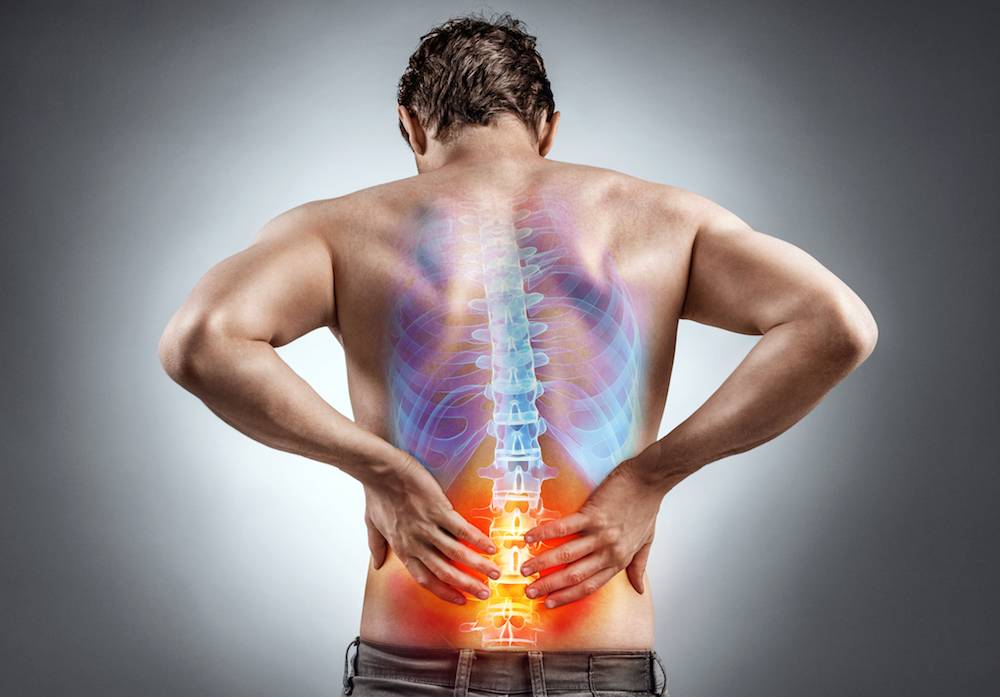By Seth Joseffer, MD
Neck pain can have many causes, from leaning over a computer all day or straining your neck during exercise, to osteoarthritis or sudden injury.
One of the most common causes of neck pain, however, is a herniated disk. This condition can put pressure on surrounding nerves and result in pain that radiates to your shoulder, arm and hand.
In many cases, a herniated disk can be treated with physical therapy and medications, but when conservative options don’t bring relief, surgery may be recommended.
The Center for Spine Care at Penn Medicine Princeton Medical Center offers patients advanced minimally invasive surgical techniques to treat herniated disks in the neck, including artificial disk replacement surgery.
Herniated Disk
The bones or vertebrae that make up your spine are cushioned by small, round disks that act as shock absorbers for the spinal bones.
In all, your spine has 24 of these bones, seven of which comprise your cervical spine or neck and each of which is separated by a protective disk.
Like a jelly donut, these disks have a firm outer layer that surrounds a jelly-like center. If the outer layer is damaged (think if you were to bite into a donut) the substance squeezes out. When this happens, it is considered a herniated disk.
Though herniated disks are more common in the lower back, they can occur in any part of the spine, including the cervical spine.
Causes
There are many factors that can lead to a herniated disk. In some instances, a herniated disk is a result of a single injury or strain. However, disks tend to degenerate naturally with age, and as the degeneration progresses, even a minor strain or twisting movement can cause it to rupture.
Additionally, there is evidence that herniated disks may have a genetic component and run in families.
Athletes, especially those who play contact sports such as hockey and football, are also at greater risk for herniated disks.
Symptoms
Not all herniated disks will cause symptoms, but if the displaced material from the disk presses on a nearby nerve, it can cause the following:
• Dull or sharp pain in the neck or between the shoulder blades.
• Pain that radiates down the arm to the hand or fingers.
• Numbness or tingling in the shoulder or arm.
• Pain that increases when bending or turning your neck.
If you experience symptoms of a herniated disk or have neck pain that does not go away on its own, see your doctor for an accurate diagnosis and treatment.
Diagnosis and Treatment
If your doctor suspects a herniated disk, they will likely recommend an MRI to confirm the diagnosis. They may also order X-rays to show the condition of the vertebrae.
Many herniated disks do not require surgery and can be treated with physical therapy and medication to help improve symptoms. Depending on your symptoms, an epidural steroid injection may be performed to reduce inflammation of the nerve.
If conservative treatment options don’t end the pain, surgery may be recommended. Traditional surgery involves removing the problematic disk and fusing the vertebrae together to stabilize the spine. While this surgery is the most commonly performed to treat a herniated disk, it does take away some flexibility.
As an alternative, surgeons at the Penn Medicine Princeton Medical Center Center for Spine Care are now offering patients who meet certain criteria the option of artificial disk replacement surgery.
Benefits of Artificial Disk Replacement
With artificial disk replacement surgery, surgeons remove the damaged disk and replace it with an artificial one, which functions like a natural disk and helps maintain normal range of motion in the neck. This minimally invasive surgery is performed through 1-to-2-inch incisions along the neck crease and usually takes no more than hour. Patients are normally able to return home the same day.
The potential benefits of artificial disk replacement include:
• Maintaining normal range of motion in the neck.
• Faster return to activity, including sports.
• Creating less stress on vertebrae.
Not all patients are candidates for artificial disk replacement. The procedure is typically not recommended for patients with advanced arthritis or bone spurs.
If you are considering surgery, talk with your doctor about your options and about what’s best for you.
Prevention
Not all neck pain can be prevented, but there are a few things you can do to reduce your risk for a herniated disk, including:
• Don’t smoke. Smoking is known to promote degenerative disease.
• Maintain proper posture. When sitting or standing, be sure your shoulders are in line with your hips and your ears are directly over your shoulders.
• Exercise. Pilates, yoga and swimming are all gentle exercise options that can help keep your neck strong.
• Don’t carry heavy bags on your shoulders. This can strain your neck.
A herniated disk can be a real pain in the neck, but advancements in treatment, such as artificial disk replacement, can help relieve symptoms and maintain mobility.
To find a physician affiliated with Penn Medicine Princeton Health call 888-742-7496 or visit www.princetonhcs.org.
Seth Joseffer, MD, is board certified in spine and neurological surgery. He is the co-director of the Center for Spine Care at Penn Medicine Princeton Medical Center.

